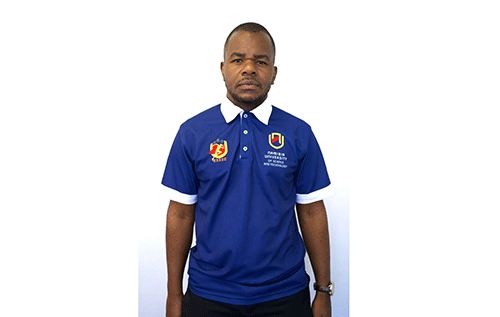The Tertiary Institutes Sports Association of Namibia (Tisan), long dormant and plagued by internal issues, is now on a promising path toward revival.
Once a powerhouse in nurturing top-tier athletes, the association had become a minefield of controversy, with persistent allegations of maladministration casting a shadow over its operations.
For years, Unam dominated Tisan’s affairs, leading to claims of unfair practices. According to a source close to the organisation, the constitution was frequently ignored, particularly during the nomination process for leadership positions, with some loopholes within the constitution being taken advantage of.
“One institution held almost 11 votes, including those of its satellite campuses. Meanwhile, other institutions that didn’t have satellite campuses had only one vote each.
This imbalance created a skewed representation that contravened Tisan’s constitution, fostering discontent among member institutions,” the source revealed.
Eslon Ngeendepi, the newly-elected interim secretary general of Tisan, acknowledged these challenges, and outlined the plans for the association’s resurgence. “We are actively working to re-engage higher learning institutions in regional, continental and global sporting competitions.
Our immediate priority is to overhaul the constitution. As we speak, an expert is rigorously assessing the constitution, and a draft of this document was submitted to the Namibia Sports Commission to ensure alignment with the Sports Act. We aim to hold an annual general meeting in October to adopt the revised constitution officially,” he stated.
In addition to the constitutional review, Tisan plans to convene a stakeholders and strategic plan-drafting meeting to ensure all members are aligned with the new direction. Ngeendepi also highlighted a significant milestone in the organisation’s revival: “For the first time in almost five years, we had the opportunity to send delegates to the FISU congress in Switzerland to represent Tisan.
This was crucial, as our affiliation had come under scrutiny. Furthermore, we managed to send delegates to the CUCSA Games as observers to cement our support and affiliation with CUCSA. Tisan is also featured in this year’s budget from the ministry of sports, and we are busy finalising an agreement with several federations and higher learning institutions for resource and expertise-sharing.
While Tisan had ambitious plans to host the CUCSA Games, financial constraints forced them to postpone it. Ngeendepi noted that unlike in the past when Tisan fully funded such events, the organisation is now exploring sponsorship opportunities, and seeking financial contributions from member institutions to cover the costs of hosting future games.
The new leadership team at Tisan, led by president John Ndungaua, first vice president Teofelus Haufiku, second vice president Allan Nghixulifwa, secretary general Eslon Ngeendepi, treasurer Patrick Kacello, publicity and publication vacant codes’ coordinator Gideon Shikulo, development officer Sen Haikela, students representatives Fikunawa Hanganeni, Zandrea Strauss and Victor Dumbo, is committed to restoring the association’s former glory.
Meanwhile, while the leadership paves the organisation’s path forward, Erica Ashipala, a former Tisan participant, shared her experience, stating that the Games should return.
“Participating in student games can have a profound influence on an individual’s growth, both personally and professionally. As a former Tisan athlete, I learned how to balance my academic responsibilities with sports commitments, and this helped me develop effective time management skills, enabling me to prioritise tasks and meet deadlines for school assignments.
Tisan taught me how to overcome challenges, setbacks and failures, and helped build resilience and adaptability, essential qualities for navigating the ups and downs of professional life in a diverse, cultured environment. Through Tisan, I got to visit African countries.
“I connected with peers, coaches and mentors, potentially leading to valuable professional networks and lifelong relationships, and I bagged myself a national team call-up.
“Through TISAN, I developed discipline and hard work, which are skills that are highly-transferable to professional settings. If revived, the TISAN Games can provide a well-rounded education, combining academic pursuits with physical activity, socialisation and personal growth for students,” added Ashipala.
She stated that Tisan could also help students build character away from criminal activities.
-lmupetami@nepc.com.na


